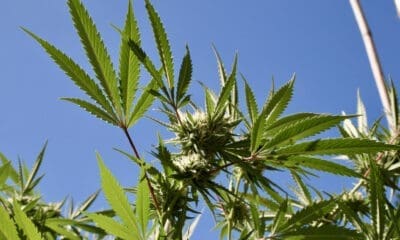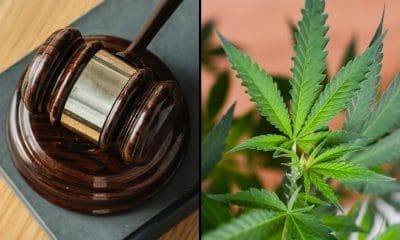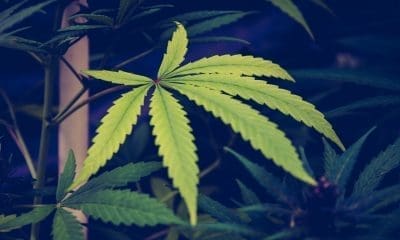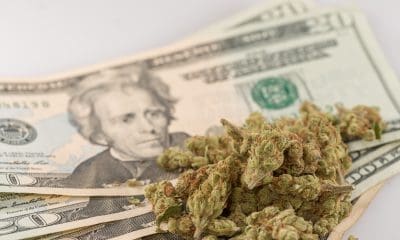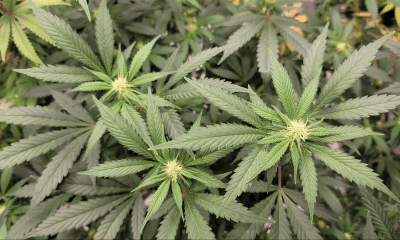Politics
Former Obama Drug Czar Says Marijuana Is ‘Not Medicine’ And That ‘Big Cannabis’ Is Behind Federal Rescheduling Decision
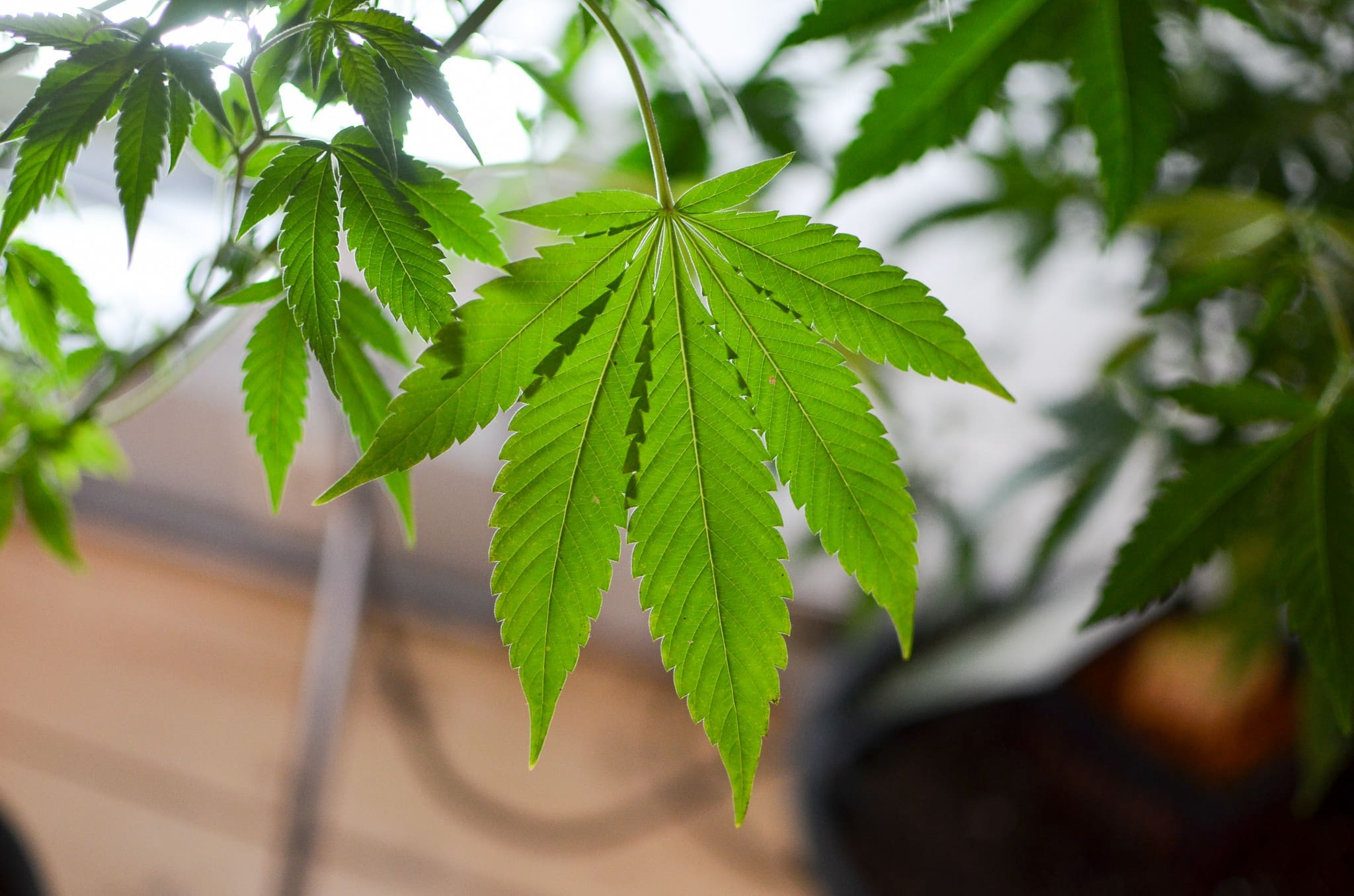
The former U.S. drug czar under President Barack Obama expressed skepticism of marijuana’s medical value and the Biden administration’s move to federally reschedule cannabis in a new interview, warning of ominous industry influence over politicians and the country’s medical review process.
“It’s not medicine,” said former Director of the Office of National Drug Control Policy (ONDCP) Gil Kerlikowske, speaking on the podcast of former U.S. Rep. Mary Bono (R).
“This is all Big Cannabis,” he added. “This isn’t people my age that are just old hippies that want to open up a pot shop somewhere. This is a huge business like Big Tobacco. Absolutely.”
Kerlikowske—also a former commissioner of U.S. Customs and Border Protection (CBP) and police chief in Seattle and other cities—was responding to a question from Bono about the opioid industry, specifically the drugmaker Purdue Pharma, and its role in the nation’s ongoing opioid overdose crisis.
“What you and I observed, I think with pretty good front row seats, was the Purdue business dealings and the Purdue ethos—the way Purdue decided to do business—which made this challenge and this problem so difficult,” Bono said. “Do you think we could see something like another Purdue Pharma business model again?”
“Well, in a way I think we’re also seeing a bit of that now with the marijuana industry, and the fact they want to reschedule,” Kerlikowske replied. “And it looks like that could certainly happen.”
He seemed to accuse “Big Cannabis” of being behind the Department of Health and Human Services (HHS) finding that cannabis has accepted medical value and should be placed in Schedule III of the Controlled Substances Act (CSA), noting that an earlier HHS review of marijuana’s scheduling status denied its medical efficacy.
“Health and Human Services, although three years earlier decided not to reschedule it, because there was no evidence of its health,” he said, “now they turned around three years later and want it rescheduled, and it looks like the Department of Justice will go along with it.”
Bono herself offered that “the street-level dealer is no longer just some…hippie.”
“It is now a member of a cartel and a part of organized crime,” the former congresswoman said, “and the whole business, if people truly knew what was behind it, they would be shocked.”
It was an honor to have President Obama's "Drug Czar" on Sagely Speaking with Mary Bono. Gil Kerlikowske and I worked together very well. In fact, he visited my congressional district and sent funds to us to create a Drug Free Communities coalition ~ listen here…
— Sagely Speaking with Mary Bono (@sagelyspeaking) May 15, 2024
Later in the podcast, when Bono asked about the politics of marijuana policy, Kerlikowske again referenced the industry’s political influence.
“I mean, you had the former speaker of the House, John Boehner, supporting this issue on marijuana, and there was a lot of money,” he said. “I mean, it is just like watching Big Tobacco all over again on that.”
In his role as chief of police in Seattle, Kerlikowske opposed a 2003 ballot initiative that instructed the Seattle Police Department to consider marijuana possession its lowest enforcement priority.
In 2019, following his exit from government, he told lawmakers in Mexico, who at the time were considering an end to prohibition in that country, that they would need “robust regulations” in place. Yet he also acknowledged that state-level legalization in the U.S. had reduced the “appetite” for drugs that are trafficked illegally across the border.
The latest CBP data show that marijuana intercepted at the southern border recently fell to record lows.
At the time, the comments were seen as noteworthy given that Kerlekowski had previously said the word “legalization” was not in his vocabulary—nor in Obama’s.
His latest comments come amid an announcement from the Biden administration that the federal government intends to reschedule marijuana from Schedule I to the less-restrictive Schedule III of the CSA.
The action is being largely praised as a historic step in the right direction, with the federal government recognizing for the first time in over 50 years that cannabis has accepted medical value and a lower abuse potential than other drugs in Schedule I such as heroin.
On the other hand, activists have emphasized that rescheduling does not federally legalize marijuana or provide corrective relief to people who’ve been criminalized over it. And, of course, prohibitionists have urged the Drug Enforcement Administration (DEA) to keep marijuana in Schedule I and are expected to litigate if the agency moves forward with the incremental reform.
DEA Administrator Anne Milgram has also acknowledged the possibility of an administrative hearing to gain further input on the decision before its finalized.
The Congressional Research Service (CRS) has also weighed in on the rescheduling development, saying in a report that while it was “likely” that DEA would enact the policy change, that would not bring state markets into compliance with federal law. It added that Congress still has the authority to address the federal-state cannabis policy gap “before or after” that reform is enacted.
To that end, Senate Majority Leader Chuck Schumer (D-NY) and colleagues have reintroduced legislation to federally legalize cannabis and impose certain regulations. The bill’s prospects are dubious in the current divided Congress, however.
Meanwhile, the top Democrat in the U.S. House said that the Biden administration’s move to reschedule marijuana is a “step in the right direction,” but it should be followed up with congressional action such as passing the legalization bill Schumer filed.
In a recent interview with Fox News, former DEA Administrator Asa Hutchinson said it “absolutely looks like” the agency will follow through with moving marijuana from Schedule I to Schedule III under the CSA.
Biden has separately issued two rounds of mass pardons for people who’ve committed federal marijuana possession offenses. Again, a Schedule III reclassification would not legalize cannabis or free people still incarcerated over cannabis.
During his last run for the presidency, Biden pledged to move cannabis to Schedule II—a stricter category compared to what’s been proposed by his administration.
Photo courtesy of Philip Steffan.




